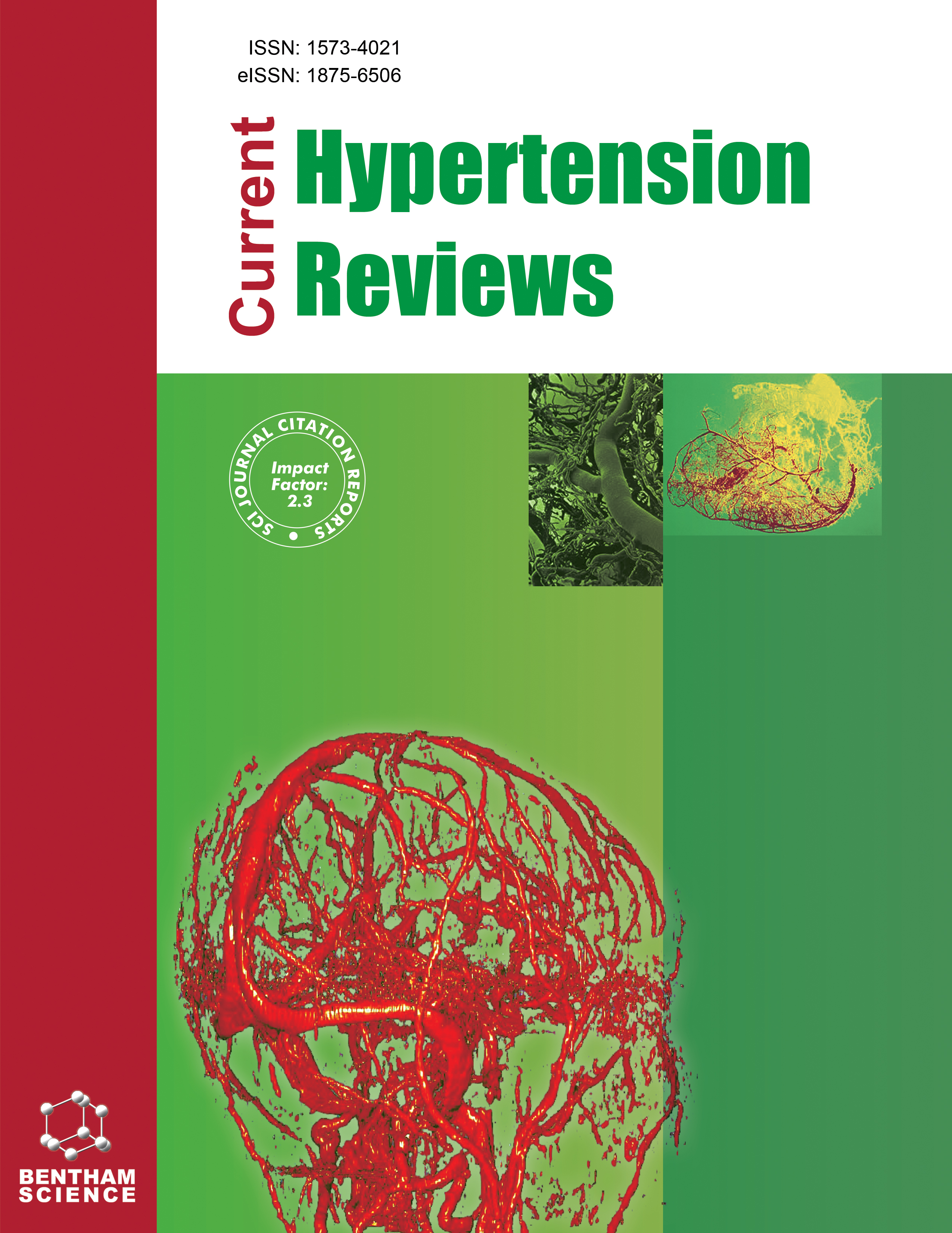-
oa Ablation of TRPV1 Elevates Nocturnal Blood Pressure in Western Diet-fed Mice
- Source: Current Hypertension Reviews, Volume 15, Issue 2, Aug 2019, p. 144 - 153
-
- 01 Aug 2019
Abstract
Background: This study tested the hypothesis that genetically ablation of transient receptor potential vanilloid type 1 (TRPV1) exacerbates impairment of baroreflex in mice fed a western diet (WD) and leads to distinct diurnal and nocturnal blood pressure patterns. Methods: TRPV1 gene knockout (TRPV1-/-) and wild-type (WT) mice were given a WD or normal diet (CON) for 4 months. Results: Capsaicin, a selective TRPV1 agonist, increased ipsilateral afferent renal nerve activity in WT but not TRPV1-/- mice. The sensitivity of renal sympathetic nerve activity and heart rate responses to baroreflex were reduced in TRPV1-/--CON and WT-WD and further decreased in TRPV1-/--WD compared to the WT-CON group. Urinary norepinephrine and serum insulin and leptin at day and night were increased in WT-WD and TRPV1-/--WD, with further elevation at night in TRPV1-/--WD. WD intake increased leptin, IL-6, and TNF-α in adipose tissue, and TNF-α antagonist III, R-7050, decreased leptin in TRPV1-/--WD. The urinary albumin level was higher in TRPV1-/--WD than WT-WD. Blood pressure was not different during daytime among all groups, but increased at night in the TRPV1-/--WD group compared with other groups. Conclusions: TRPV1 ablation leads to elevated nocturnal but not diurnal blood pressure, which is probably attributed to further enhancement of sympathetic drives at night.


